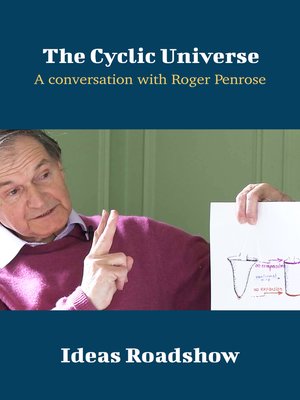The Cyclic Universe
ebook ∣ A Conversation with Roger Penrose · Ideas Roadshow Conversations
By Howard Burton

Sign up to save your library
With an OverDrive account, you can save your favorite libraries for at-a-glance information about availability. Find out more about OverDrive accounts.
Find this title in Libby, the library reading app by OverDrive.



Search for a digital library with this title
Title found at these libraries:
| Library Name | Distance |
|---|---|
| Loading... |
In the last twenty years, cosmology has unexpectedly emerged as one of the most exciting and dynamic fields of modern science. From astoundingly precise measurements of the cosmic microwave background to the ongoing mysteries of dark energy and dark matter, modern cosmology is unquestionably in the midst of its Golden Age.
And yet, one of the most eminent mathematical physicists of our age, Roger Penrose is convinced that there is one fundamental problem that is consistently being overlooked: why did our universe begin in such a particular state of extremely low entropy? Penrose's Conformal Cyclic Cosmology (CCC) is an attempt to directly address that question. This extensive conversation between Howard Burton and Roger Penrose, co-recipient of the 2020 Nobel Prize in Physics and Emeritus Rouse Ball Professor of Mathematics at the Mathematical Institute at the University of Oxford, explores his motivation to come up with this theory in the first place and provides detailed insights into his groundbreaking research.
This carefully-edited book includes an introduction, A Hidden Audience, and questions for discussion at the end of each chapter:
About Ideas Roadshow Conversations Series (100 books):
Presented in an accessible, conversational format, Ideas Roadshow books not only explore frontline academic research featuring world-leading researchers, including 3 Nobel Laureates, but also reveal the inspirations and personal journeys behind the research. Howard Burton holds a PhD in physics and an MA in philosophy, and was the Founding Director of Canada's Perimeter Institute for Theoretical Physics.







